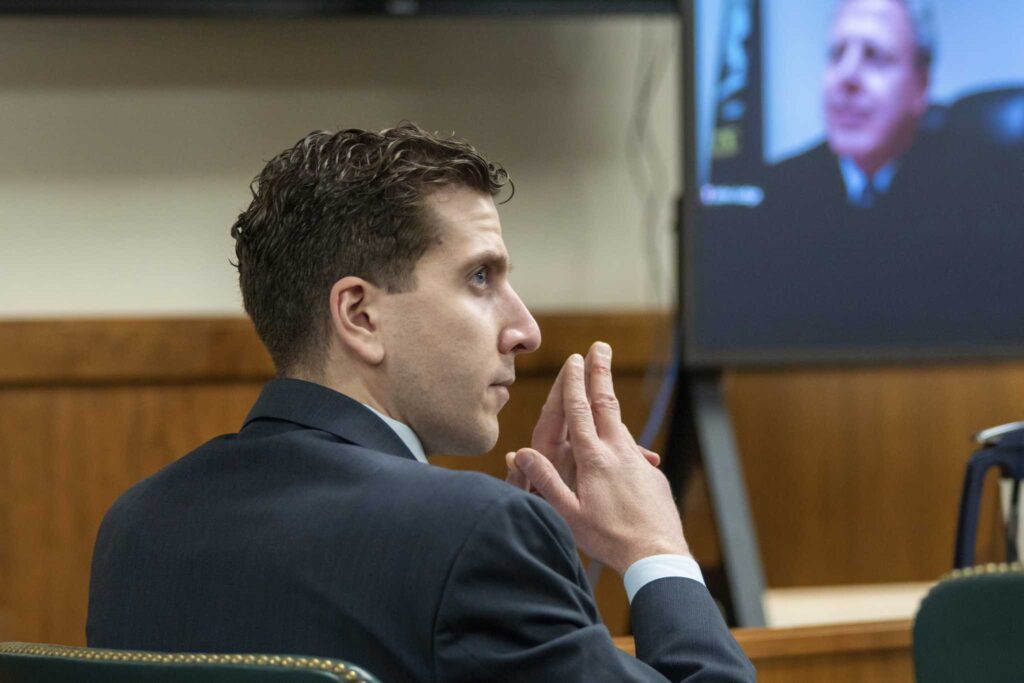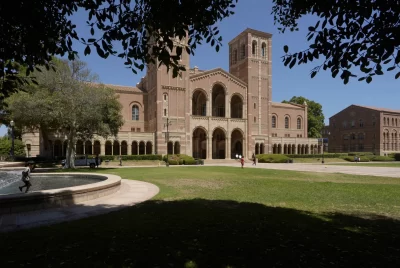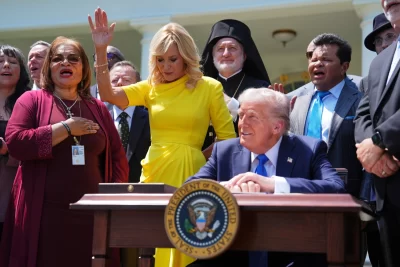
FILE - Bryan Kohberger listens to arguments during a hearing in Moscow, Idaho, on Thursday, Oct. 26, 2023. On Monday, Nov. 20, an Idaho judge overseeing Kohberger's trial issued an order banning media cameras from the courtroom. A livestream of the proceedings will be available to ensure public access. Kohberger is accused of stabbing four University of Idaho students to death late last year. (Kai Eiselein/New York Post via AP, Pool, File)
The judge overseeing the case of a man accused of stabbing four University of Idaho students to death late last year is banning members of the media and the public from using cameras and audio recording devices in the courtroom, saying they jeopardize the defendant’s right to a fair trial.
Second District Judge John Judge in Moscow, Idaho, said the court would, however, operate a livestream, available on its YouTube channel, that would ensure members of the public can observe the proceedings.
Bryan Kohberger is charged with four counts of murder in connection with the deaths at a rental house near the university campus in Moscow last November. A judge entered a not-guilty plea on Kohberger’s behalf earlier this year. Latah County Prosecutor Bill Thompson has said he intends to seek the death penalty, and the case is scheduled for trial this fall, although it could be postponed.
The judge had been allowing news cameras in the courtroom during hearings under strict conditions, but on Friday, he granted a request by Kohberger’s attorneys to ban them. Judge wrote that some photographic and video coverage had zoomed in on Kohberger, despite his directive that shots show the entire courtroom, and that some shots depicted him entering or exiting the courtroom, despite orders that images only be taken when court is on the record and not in recess.
“It is the intense focus on Kohberger and his every move, along with adverse headlines and news articles, that leads the Court to conclude that continued photograph and video coverage inside the courtroom by the media should no longer be permitted,” Judge wrote.
The bodies of Madison Mogen, Kaylee Goncalves, Xana Kernodle and Ethan Chapin were found Nov. 13, 2022, at a home across the street from the University of Idaho campus. Investigators pieced together DNA evidence, cellphone data and surveillance video that they say links Kohberger to the slayings.
Kohberger was a graduate student studying criminology at Washington State University, which is a short drive from the scene of the killings across the state border. He was arrested at his parents’ home in Pennsylvania, and the unusual details of the case have drawn widespread interest.
Judge said his order, which cannot be appealed, would balance the public’s interest with Kohberger’s right to a fair trial and the orderly administration of justice, because the court would not have to monitor who was recording images of what.
“To be clear, the Court is not accusing all journalists and media outlets of violating the Court’s orders,” he wrote. “However, Court operated video system will give the Court greater control over what is being videoed, will lessen the burden on the bailiffs, will help to alleviate counsels’ concerns, and will allow the media and the public access to the video footage of the proceedings.”
___
Johnson reported from Seattle







